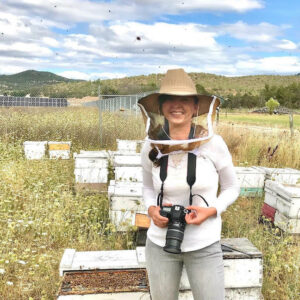Sierra McClain, 2019, Capital Press
Sierra McClain dreamt of becoming a writer for as long as she could remember.
“Literally I was two years old, I was tiny,” she said.
But as a middle schooler, McClain watched as her family struggled, at some points experiencing and other times on the verge of houselessness. These obstacles discouraged McClain from pursuing a writing career for fear of falling into the “starving artist stereotype.”
“I was just concerned that (writing) wasn’t going to be a viable career path,” she said.
So, when it was time for McClain to attend university, she enrolled as a history major at the University of Oregon with aspirations of becoming a teacher.
“I thought I would teach, because I thought I could have made a good life and career out of that and enjoy it but I knew it was my biggest passion,” she said. “I was choosing it for stability reasons and a bit out of fear.”
In 2018, just as McClain was about to graduate with her degree and start a teaching program, when her brother told her that she was pursuing a career in something that wasn’t her passion. He encouraged her to give journalism a shot.
So she applied to a graduate program. And just a week after walking across the graduating stage for her bachelor’s, McClain began classes at the University of Oregon’s journalism graduate program.
“All the pieces fell into place,” she said.
After the year-long program, McClain applied for the Snowden program because of its reputation for helping interns get their feet in the door of the journalism field. A couple of months later, she started at the Capital Press, a Salem-based newspaper focusing on agriculture in the Pacific Northwest.
McClain hit the ground running. On her second day on the job, she headed out to the field to cover a string of protests advocating against the Cap and Trade legislation that the state government was considering.
“I learned never to bring a pen to report in the rain,” she said.
From there, McClain wrote stories from the wine industry’s economic impact on Oregon’s economy to a piece on wind energy that continues to be the most read story Capital Press has ever published.
When her internship was coming to a close, McClain approached the publisher, Joe Beach, and asked if there was ever an opening at the newspaper to keep her in mind. Several months later, just as she returned to the United States from an internship with the United Nations in Geneva, Beach called her asking if she’d like a job.
McClain has worked for the Capital Press for over three years now. She has secured fellowships at the Investigative Reporters and Editors Association and, more recently, with Poynter. Her work has also been recognized and awarded statewide and nationally.
“I think in the most basic way (Snowden) helped shape my career by giving me a chance in journalism,” she said.
Despite growing up on a farm, McClain figured she’d pursue a career in politics or as a city reporter. Yet, being placed in an agriculture newspaper has helped her gather practical skills in a close-to-home beat. She advises anyone interested in the Snowden program to be open to where they may be placed in the internship.
“I’ve learned a ton long term and I’m probably going to continue in journalism because I love it and as I get older I hope to give back as a mentor or maybe even teach,” she said.


